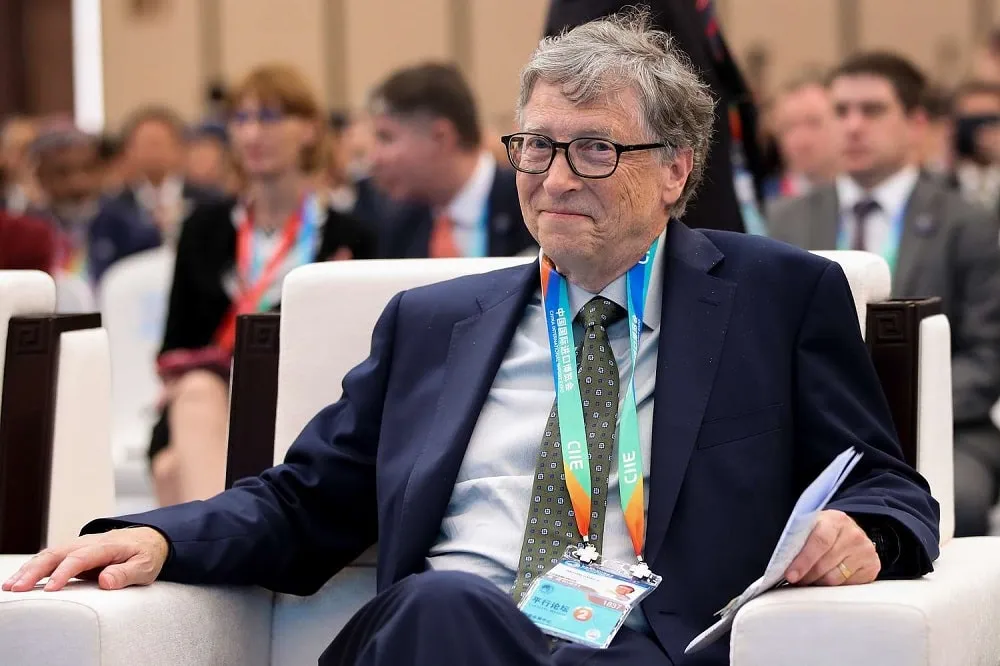
Table of Contents
ToggleShort Note on Bill Gates
Today, we will share a short biography of Bill Gates. This post will benefit those who want to know more about Bill Gates. This biography of Bill Gates is written in harsh words. Read the complete biography.
Bill Gates Early Life
Bill Gates, fully Henry Gates III (born October 28, 1955, in Seattle, Washington, U.S.), is an American programmer and businessperson who cofounded Microsoft Corporation, the world’s largest personal computer software company.
Gates was brilliant from childhood and wrote his first software program at 13. In high school, he helped form a bunch of programmers who computerized their school’s payroll system and started Traf-O-Data. This organization sold traffic-counting systems to local governments. In 1975 Gates, then a sophomore at Harvard University, joined his friend Paul G. Allen to develop software for primary microcomputers.
They began by adapting BASIC, a popular programming language used on large computers, to be used on microcomputers. With the Success of this project, Gates left Harvard during his junior year and, with Allen, founded Microsoft.
Gates’s sway over the infant microcomputer industry greatly inflated when Microsoft commissioned an OS known as MS-DOS to International Business Machines Corporation—then the world’s biggest computer provider and industry pacesetter—for use on its first microcomputer, the IBM PC (personal computer).
In 1981, after the machine was released, the technical standard for the PC industry was quickly set by IBM, and MS-DOS likewise pushed out competing operating systems. Whereas Microsoft’s independence strained relations with IBM, Gates dextrously manipulated the more prominent company, so it became permanently dependent on him for crucial software.
Manufacturers of IBM-compatible PCs, or clones, additionally turned to Microsoft for their essential software. By the beginning of the 1990s, he had become the PC industry’s king.
Mainly on the strength of Microsoft’s Success, Gates collected a large paper fortune as the company’s largest individual stakeholder. He became a billionaire in 1986, and within a decade, his net worth had reached the tens of billions of dollars—making him, by some estimates, the world’s wealthiest non-public individual.
Bill Gates Career and Achievements
With few interests on the far side of the software and the potential of IT, Gates initially preferred to remain out of the general public eye, handling civic and philanthropic affairs indirectly through one of his foundations. Nonetheless, as Microsoft’s power and name grew, mainly because it attracted the look of the U.S. Justice Department’s antitrust division, Gates, with some reluctance, became a lot more public figure. Rivals (particularly in competitive corporations in Silicon Valley) delineated him as driven, dishonorable, and determined to benefit from virtually every electronic transaction.
In addition to his work at Microsoft, Gates was additionally illustrious for his charitable work. He launched the William H. Gates Foundation (renamed the Bill& Melinda Gates Foundation in 1999) in 1994, along with his ex-wife Melinda, to fund world health programs and projects in the Pacific Northwest. During the latter part of the 1990s, the couple supported North American libraries through the Gates Library Foundation (renamed Gates Learning Foundation in 1999).
It raised cash for minority study grants through the Gates Millennium Scholars program. In February 2014, he stepped down as chairman however continued to function as a member till 2020. During this point, he was awarded the Presidential Medal of Freedom (2016). The documentary series Inside Bill’s Brain: Decoding Bill Gates appeared in 2019. Gates and his wife got divorced two years later.
Conclusion
It remains to be seen whether or not Gates’ extraordinary Success can guarantee him a long-lasting place in the pantheon of great Americans. Gates displayed an acute awareness of the perils of prosperity in his 1995 bestseller, The Road Ahead, where he observed, “Success is a lousy teacher. It seduces smart people into thinking they can’t lose.”
About Author
Piyush Kumar
We, with our blogs, promotes the traveling lifestyle and helps in guiding people about all the aspects of exploring a new place, shaktipeeth, jyortirlinga, foods, temples, etc.








